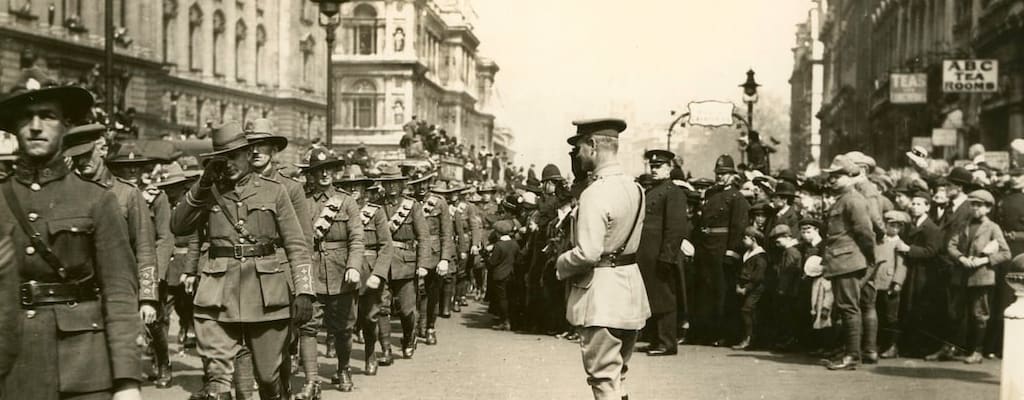butcher’s bill: Idiom Meaning and Origin
What does ‘butcher's bill’ mean?
The idiom butcher's bill refers to the cost or consequences of a dangerous or destructive action or situation.

Idiom Explorer
The idiom "kiss of death" refers to an action or event that leads to certain failure or ruin. It implies that something or someone has a detrimental or fatal effect on a situation or outcome.
The idiom "hell to pay" means to face severe consequences or trouble for one's actions or decisions.
The idiom "hell mend someone" means that someone will have to suffer the consequences or outcomes of their actions, usually in a negative way.
The idiom "get away with murder" means to escape punishment or consequences for one's actions, often referring to getting away with something serious or outrageous.
The idiom "full whack" means to pay or charge the complete or maximum amount for something, often implying it is expensive or a high price to pay.
The idiom "foot the bill" means to pay for something, often used when one person pays the entire cost of an expense or bill.
"Fool's bargain" is an idiom that refers to a deal or agreement that appears to be advantageous at first, but ultimately turns out to be a mistake or a bad decision.
The idiom "doomed if you do, doomed if you don't" refers to a lose-lose situation, where any choice or action will lead to negative consequences or a bad outcome.
The idiom "do ill" means to cause harm or injury, to act in a harmful or negative way.
Legacy of Carnage
The idiom "butcher's bill" originated in the early 19th century and is commonly used in both British and American English. It comes from the literal meaning of a butcher's bill, which is a record of the meat and other items a customer has bought from a butcher. But over time, the phrase has taken on a figurative meaning, representing the cost or consequences of a violent or destructive act.
When used in this metaphorical sense, "butcher's bill" refers to the grim tally of casualties, injuries, or damages resulting from a conflict, war, or any similar bloody event. It emphasizes the brutality and severity of the situation, often conveying a sense of tragedy and loss. This idiomatic expression serves as a reminder of the high human cost of such actions and highlights the grim reality of violence.
Furthermore, the idiom can also be used metaphorically in non-violent contexts, describing the negative consequences or fallout of a reckless or ill-advised action. It emphasizes the idea that one must bear the responsibility for the damage or harm caused by their actions. Like the literal butcher's bill, this usage underscores the notion that actions have consequences and one must be prepared to face them.
The origin of the idiom "butcher's bill" is uncertain, but it likely stems from the connection between butchers and violence in history. Butchers were often associated with bloodshed and brutality due to the nature of their profession, where the slaughter of animals was a prevalent aspect. This association likely contributed to the adoption of the phrase as a metaphor for the costs of violence.
Overall, the idiom "butcher's bill" serves as a powerful reminder of the consequences of violent or destructive actions. It evokes a sense of the heavy price that must be paid for such behavior and invites contemplation on the lasting impact of violence. By using imagery related to butchers and their bills, this idiom effectively conveys the severity and inevitability of the consequences that follow such actions.
"Butcher's bill" can be related to the idiom "bill of goods". While "butcher's bill" indicates the consequences of a violent or destructive act, "bill of goods" refers to being deceived or misled. It conveys the idea of someone being sold something of low quality or value, similar to receiving a list or record of goods from a butcher that do not meet expectations. Just as one must pay the cost or consequences of a "butcher's bill", one must also face the disappointment or negative outcomes of being sold a "bill of goods".
Another related idiom is "hell to pay", which can be connected to the concept of a "butcher's bill". While "butcher's bill" emphasizes the cost or consequences of violence or destruction, "hell to pay" signifies facing severe consequences or punishment for one's actions. It conveys the idea of a reckoning or having to endure a significant price, much like the consequences symbolized in a "butcher's bill". Both idioms underline the seriousness and weight of the repercussions that result from certain actions.
Additionally, "butcher's bill" can be related to the idiom "at the expense of". "At the expense of" refers to achieving something by sacrificing or causing harm to something or someone else. In the context of a "butcher's bill", it signifies the payment of a high price or cost, often involving loss or damage. Just as a butcher's bill represents the price of violence or destruction, "at the expense of" captures the idea of paying the cost or consequences at the detriment of someone or something else.
Example usage
Examples of how the idiom "butcher's bill" can be used in a sentence:
- The country's economy is suffering, and the government will have to pay the butcher's bill for their poor decisions.
- After a long and bloody war, the soldiers returned home, carrying with them the butcher's bill of their sacrifices.
- He was warned about the dangers of reckless behavior, but now he has to face the butcher's bill of his own actions.
More "War" idioms



